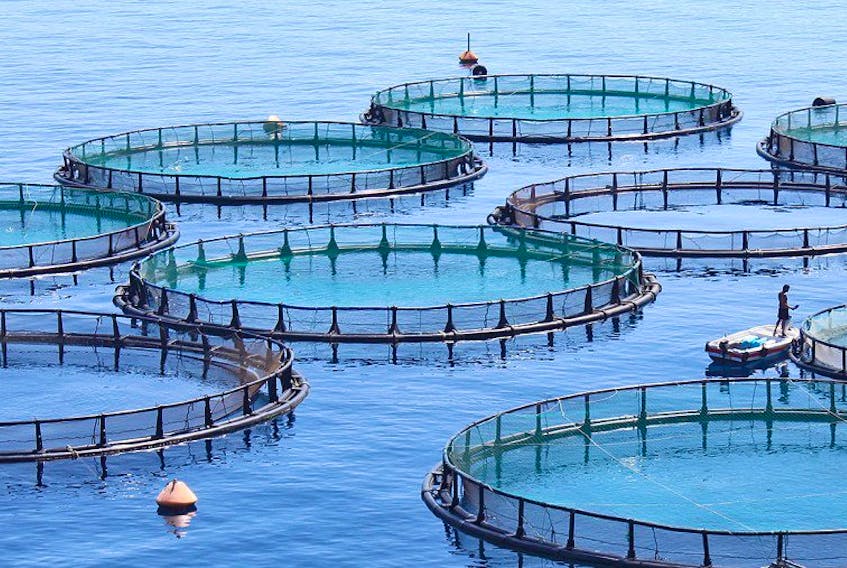You might think that when you send your kids to school, they are insulated from government propaganda for a few hours, concentrating on the all-important four Rs — reading, writing, ’rithmetic and rantin’ on social media.
You’d be wrong.
The provincial government and Premier Dwight Ball apparently believe it is proper to use pupils as a captive audience to promote their political policies.

Ball and his buddies recently announced a $550,000 gift to the Newfoundland Aquaculture Industry Association.
At first glance, it is typical of our era — more government money to follow the tens of millions in public funding that has gone to private companies operating fish farms in the province.
The amount of this latest instalment of corporate welfare isn’t much — a mere $550,000.
What it will be put toward, however, should concern parents, teachers and students.
The government’s news release is headlined, “Supporting recruitment and retention in the aquaculture industry.”
Oh good, you might respond, they’ve finally come up with a reliable way to stop farmed salmon from escaping from pens.
But no, they’re not referring to fish, they’re referring to people. Working people, in jobs, which is why they’ll get away with such blatant propaganda.
“As part of the long-term vision for the industry, introducing the province’s youth to the sector is considered central to continued growth,” a news release states. “Through this project, (the Newfoundland Aquaculture Industry Association) is planning to develop a virtual reality-based, immersive experience for youth in both primary and secondary school. The project will involve the creation of virtual reality simulations that highlight the existing opportunities in the industry, and the cutting-edge methods of modern-day aquaculture in Newfoundland and Labrador.”
Biology and social studies teachers, if they agree to or are forced to show the resultant video to their students, might want to start a class discussion by asking, “Is that the whole story?”
This should send a proverbial shiver up the spines of teachers and principals across the province.
The government wants schools to deliver their propaganda.
Make no mistake — it is propaganda, no matter which side of the aquaculture debate you are on.
The government, of course, sees no controversy, either in farming salmon or in producing pro-aquaculture videos to distribute to schools to show to students.
In reality, the issue is far from settled, with outbreaks of disease among farmed fish and escapes from pens and the consequent mixing with wild salmon making occasional headlines.
The $550,000 will be used by an outfit called Learning Labs to make videos and websites, including, “a virtual reality video providing an immersive introduction to aquaculture. The five- to seven-minute video will be promoted in the province’s schools and targeted toward youth, parents and job seekers.”
After their “immersive introduction” to the “immersive experience” of the aquaculture industry, it is highly doubtful students will have been exposed to both — or all — sides of this controversial practice.
Such as, say, the Atlantic Salmon Federation’s contention that the provincial government cannot and should not act as both participant in and regulator of the aquaculture industry, or whether the industry’s real viability in economic terms is tainted by the millions of dollars it has received from the government.
Biology and social studies teachers, if they agree to or are forced to show the resultant video to their students, might want to start a class discussion by asking, “Is that the whole story?”
In the government’s view, the answer is “yes.” It is always yes, because the government’s position on any given public issue or controversy is always wise and correct. (See: Muskrat Falls, wisdom of.)
Instruction could also be expanded to include another aspect of Learning Labs’ work, “Aquaculture 101: an online course aimed at encouraging adults as well as students and youth to join the aquaculture industry through a greater understanding of its potential.”
Replace “potential” with “risks and dangers” and you could get a good class discussion going, although Ball might be none too happy if word gets back to him. That’s not what he is spending the $550,000 for.
Spending? No, “investing” is the official description in the news release. Governments don’t spend anymore. They invest.
They don’t spend to build a school. They invest in education. And so on.
English teachers could probably create a good lesson plan based on this, about the importance of words and such, but it would likely be applicable only in the higher grades.
Brian Jones is a desk editor at The Telegram. He can be reached at [email protected].
RELATED:









